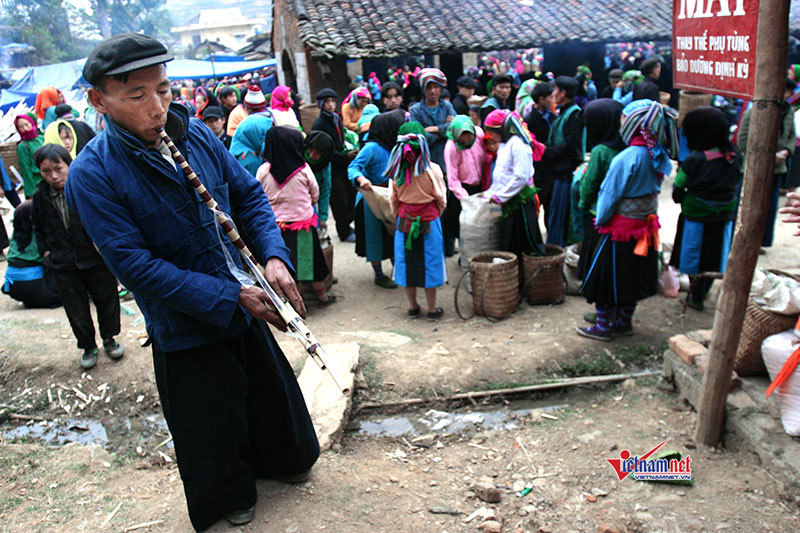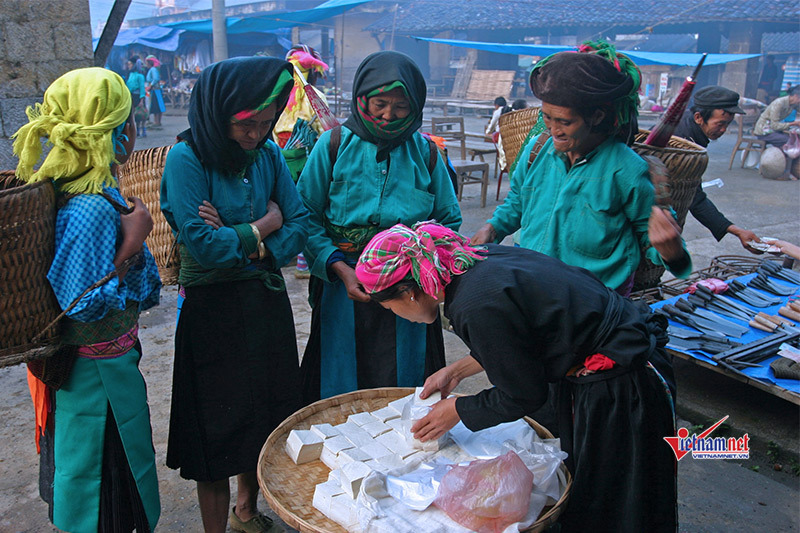In the context of international integration under the impact of globalization and the market mechanism, ensuring the rights of ethnic minorities is the primary and basic responsibility of the State.
At the same time, individuals, families and socio-political organizations are obliged to use methods and measures to realize the principles and standards of the rights of ethnic minorities as well as prevent the abuse and violation of their rights in practice.
However, in a context with many volatile and many newly emerging factors, in order to maximize the rights of ethnic minorities, comprehensively and multi-dimensionally grasping the aspects and characteristics of rights is an objective requirement.
Accordingly, ensuring the rights of ethnic minorities is not only limited to everyday human rights values (livelihoods, jobs, income, meals, housing, healthcare, education...) but also the common values of a community as an equal ethnic group in a multi-ethnic country, such as the right to democracy, the right to participate in politics, the right to preserve and develop, and promote cultural identity, the right to security and social safety...
From this point, we can identify some features in the guarantee of rights of ethnic minorities in Vietnam.
Firstly, equality, respect, solidarity, and harmonious settlement of relations between ethnic groups help each other develop together to fully ensure the rights of individuals and communities, and at the same time support them not to be left behind.
 |
The Resolution of the 12th Party Congress in 2016 clearly stated: “Continue to improve mechanisms and policies to ensure equality, respect, solidarity, and harmonious relations among ethnic groups, help each other develop, create clear changes in economic, cultural and social development in areas where there are large numbers of ethnic minorities”.
This principle is demonstrated in the following points:
Ensuring, protecting and promoting equality in enjoyment of rights and non-discrimination for all human rights contents, including: political, economic, cultural and social rights. Due to the specific nature of the “minority” and vulnerability, ethnic minorities may be easily marginalized from equality in ensuring basic human rights. Therefore, while ensuring human rights for ethnic minorities, it is necessary to support this "specificity" to implement the necessary support measures for ethnic minorities.
Ensuring a number of specific rights, especially for ethnic minorities such as: the right to use and preserve language, the right to have a cultural life and support to preserve culture and identity; the right to follow and practice belief without violating other human rights.
Ensuring the State's obligation to solve and compensate for the breach of their particular rights.
Secondly, ensuring the right to diversity and unity of knowledge of ethnic minorities.
In this feature, the aspect of ensuring diverse rights is reflected in the following aspects:
Respect, protect and implement the diversity of the right to sense of ethnic self-awareness, about the ethnic composition of individuals, and characteristics of the cultural landscape - ethnic territory, economic relationships and psychological characteristics, beliefs, marital relations, custom of making friends... with ethnic cultural identity.
Respect, protect and exercise the right to the ethnic language including the language and scripts in social life and daily activities associated with the right to use Vietnamese as a common language.
The rights of ethnic minorities are both universal and specific. All ethnic minorities have equal rights with the majority. Due to their vulnerabilities, they need to be guaranteed with priority rights. The specialized rights of ethnic minorities are shown in three aspects: equal right without discrimination, the right to preserve cultural identity, the right to support development by the State.
Human rights are first of all individual rights, but it is also the right of the socio-cultural group in each ethnic minority group. And those rights are concretely guaranteed in terms of economic, social and cultural development in each ethnic group and ethnic - nation. Therefore, the guarantee of human rights must basically depend on the rights of ethnic minorities and ethnic-national communities, because the rights of these two community levels cover the rights of individuals in those groups.
If the rights of the national community - ethnic group and the national community - country are not respected, protected or guaranteed, human rights as the right of an individual, a social-cultural group, a separate community will be difficultly respected, protected and guaranteed in reality.
In the context of international integration, under the impact of globalization and the market mechanism, while the ethnic-national boundaries become blurred, fragile, the human rights are highlighted as a core value of the times.
The rights of ethnic minorities in some aspects must depend on human rights. But along with the process of international integration, ethnic minorities, ethnic groups and nations – both large and small - are trying to affirm and preserve the remains of the national identity.
 |
Therefore, human rights in a certain aspect must depend on the rights of ethnic minorities. The relationship between human rights and ethnic minority rights is increasingly complicated. In this respect, with this condition it is appropriate to highlight human rights, but in other respects, in other circumstances, it is right to respect rights of ethnic minorities.
In ensuring human rights and the rights of ethnic minorities, nations need to take into account factors of time. This is also a principled issue to maximize human rights while ensuring the rights of ethnic minorities and the people in the present era.
Another point to consider is the civil rights institution in the relationship between the rights of ethnic minorities and human rights. Human rights are not identical with citizenship, but the process of ensuring human rights in each ethnic minority basically takes place within the institutional framework of citizenship in each country.
Even if a nation is a member and directly implements many international human rights conventions, international law cannot fully cover and institutionalize human rights and citizenship in each nation. In general, international law must rank behind the Constitution as the original law of each nation.
Therefore, the process of ensuring ethnic minority rights and human rights must always come from citizenship or socio-political institutions of citizenship in each ethnic group - country.
Ethnic groups - nations are equal in their sovereignty and internal affairs of each ethnic group – each nation is determined by the state itself. It is impossible for a nation to consider its institution of citizenship as the "universal" human rights model to be imposed on other nations.
Ngoc Chau